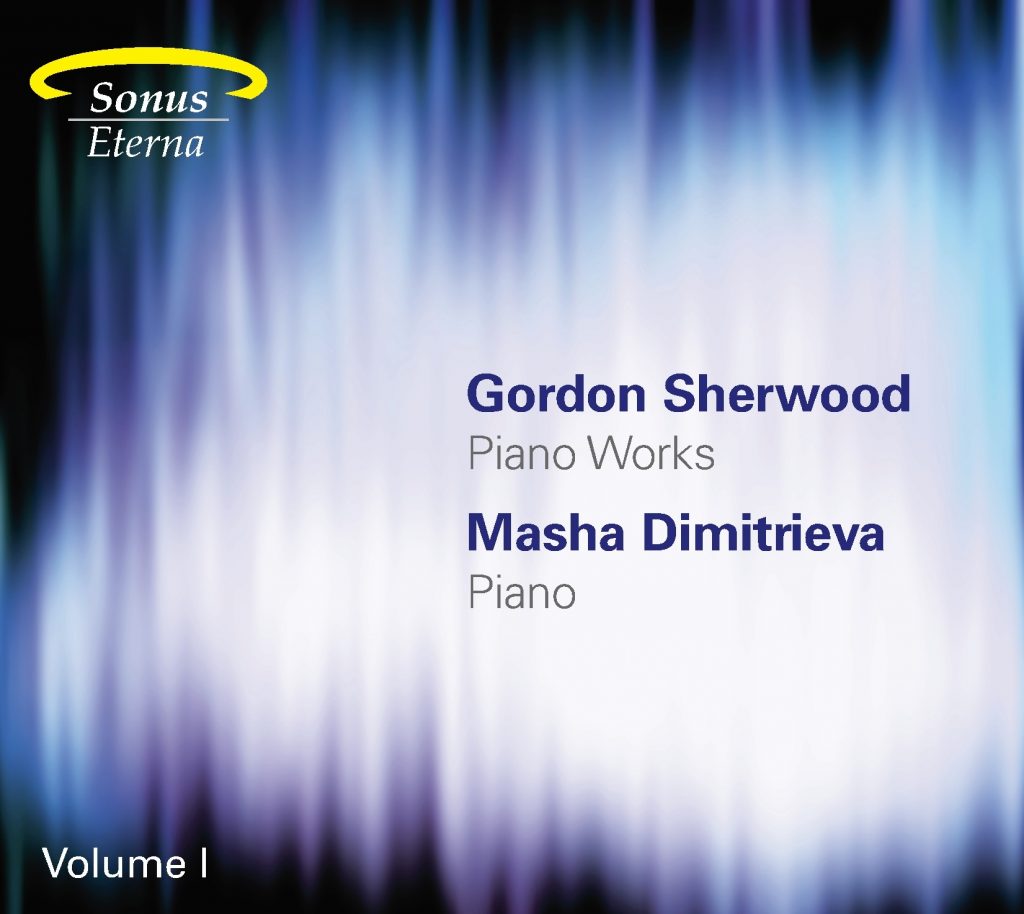Masha Dimitrieva plays selected piano works by Gordon Sherwood for Sonus Eterna: Dance Suite op. 67, Sonata quasi una fantasia op. 78, Four Sonatinas op. 27, Sonata for Ariana op. 77 and a selection from Boogie Canonicus op. 50.
Gordon Sherwood’s life couldn’t have been more adventurous, eventful and cinematic. As a child, Sherwood, born in 1929, experienced tremendous trauma from bullying and oppression in a US cadet institution, but then blossomed fully in the musical profession he took up against his father’s wishes and, under the wing of Aaron Copland, moved straight towards an international career. However, he gave this up for studies in Hamburg with Philipp Jarnach and, after a further stay in the USA, went to Rome, where he continued his studies with Goffredo Petrassi. Via Cairo and Greece, he went to Nairobi with his wife Ruth, whom he had met in Hamburg. In 1968 he broke off everything there, became a permanent world traveller, earned his money over long periods as a beggar.
Gordon Sherwood spent most of his last years in Germany, mainly thanks to Masha Dimitrieva, who, inspired by the film “The Beggar of Paris” by Erdmann Wingert and Heiner Silvester, sought contact with the composer and convinced him through her playing as well as her personality to even write a piano concerto for her. Gordon Sherwood died in May 2013 in Upper Bavaria, leaving behind 143 completed works and countless sketches.
To assign Gordon Sherwood to a style or even to work out a personal style from his music is an almost hopeless task. The only characteristic of his work is that it does not have an established style. Sherwood was a citizen of the world and accordingly he allowed all influences their place in his work: American, French, Italian, German, Middle Eastern and Far Eastern music, jazz, boogie and blues, pop and rock, folk music and almost everything else that can be found musically wherever. Sherwood saw himself neither as an innovator nor as a traditionalist; he simply followed the path that felt right to him. Conventions, schools of composition and normative constrictions left him cold. So his music could be described as one thing above all: natural and unforced. In this way, his music manages to appeal to the human being in itself and to penetrate his innermost being. His music should be accessible to many, and will appeal to many once they get to know it. At the same time, with the knowledge of three outstanding teachers in mind, set at a masterly level of craftsmanship and conceived to carry the mood, these works are in a balanced position between the simple, the musically educated and the completely clueless listener.
The musical performance of the Russian-born pianist Masha Dimitrieva, a former student of the legendary Conrad Hansen, is outstanding. She moves soulfully and lively through all the so fundamentally different pieces on this CD, from the melancholy sonatas to the lively dance suite and the partly oriental and Indian-infused sonatines to the swinging and rocking, canonically intricate boogies. Adequate to the pieces, she captivates with inner balance and calm. Masha Dimitrieva gives each piece what it specifically requires for a successful performance, which presupposes a wide-open and versatile mind. Masha Dimitrieva’s playing blossoms in delicacy and attention to detail, which easily helps to overcome even the unfavourable recording technique. In large phrases, she flows in the music and the music in her, always keeping the context of the closed form in sight and knowing how to guide the listener safely from the first to the last note.
[Oliver Fraenzke, January 2018]








